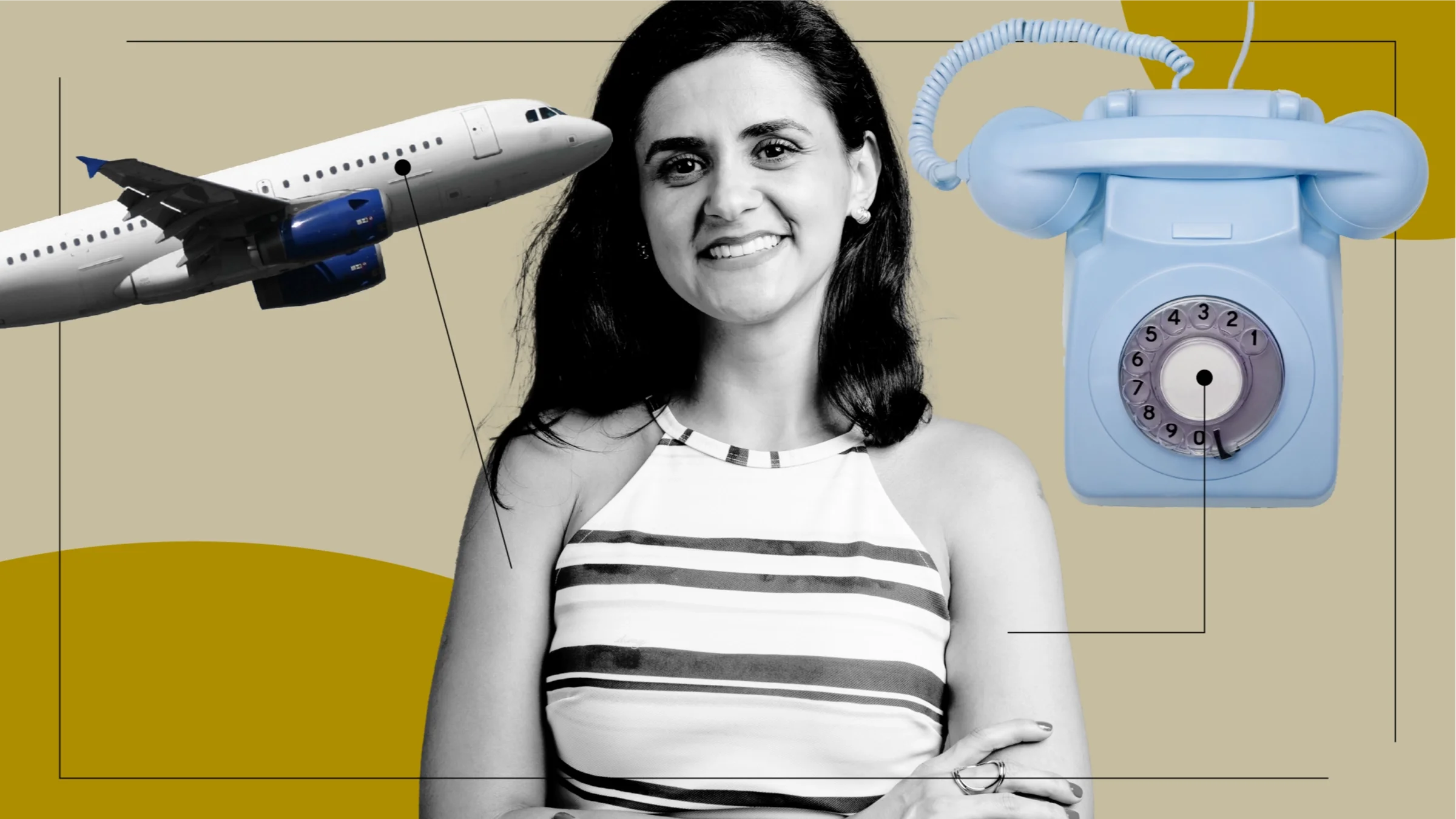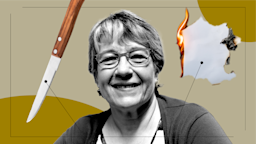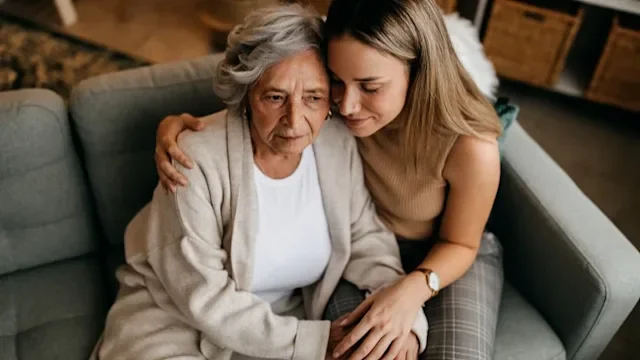Key takeaways:
Challenges of long-distance caregiving include more than the physical distance.
Long-distance caregivers tell GoodRx other issues they face include logistical challenges, lack of control over decisions, and emotional strain.
It can also require careful planning and organization to coordinate appointments, medications, and other essential aspects of care from a distance.
Melissa Fisher says she sometimes feels like she is just waiting for the next bad thing to happen.
She’s the long-distance caregiver for multiple family members. She says she doesn’t get much control over many of the decisions that are made. Questions about treatment, hiring extra support, or moving locations are out of her hands.
But she’s always there to pick up the pieces when something goes wrong — which is often.
“I feel like caregiving remotely is still kind of an unknown place,” Melissa says. “There are a lot more of us out there in this role than people even realize, because we don’t talk about it as much.”
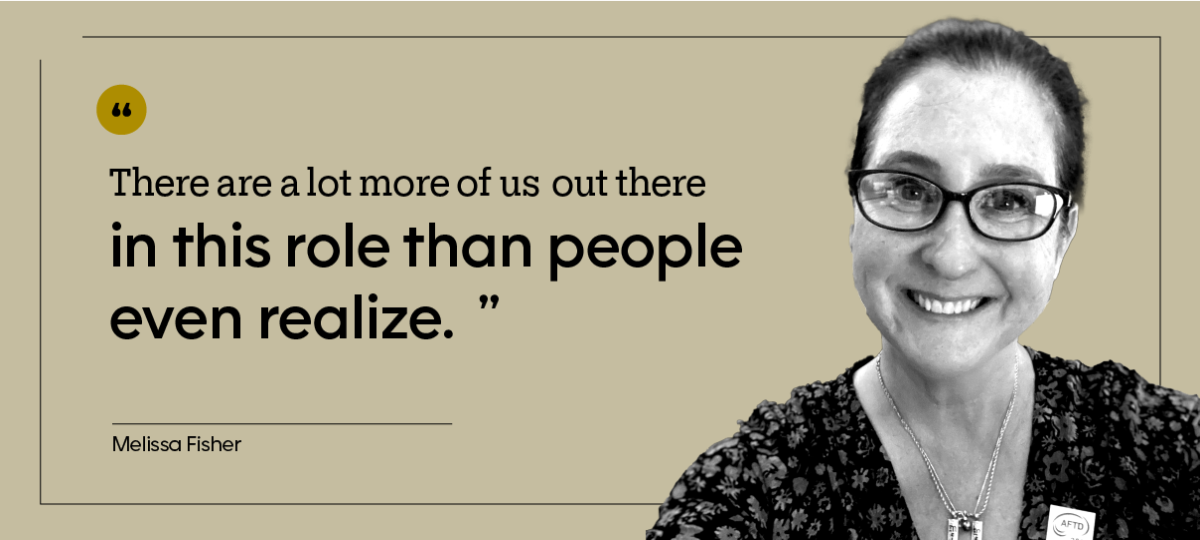
According to the National Alliance for Caregiving, about 15% of the 34 million adults in the U.S. who care for seniors do so from a distance.
Melissa lives in Oregon. In recent years, both of her parents — who live in Maui, Hawaii — were diagnosed with serious health problems. Her father has frontotemporal dementia, and her mother has Parkinson’s disease.
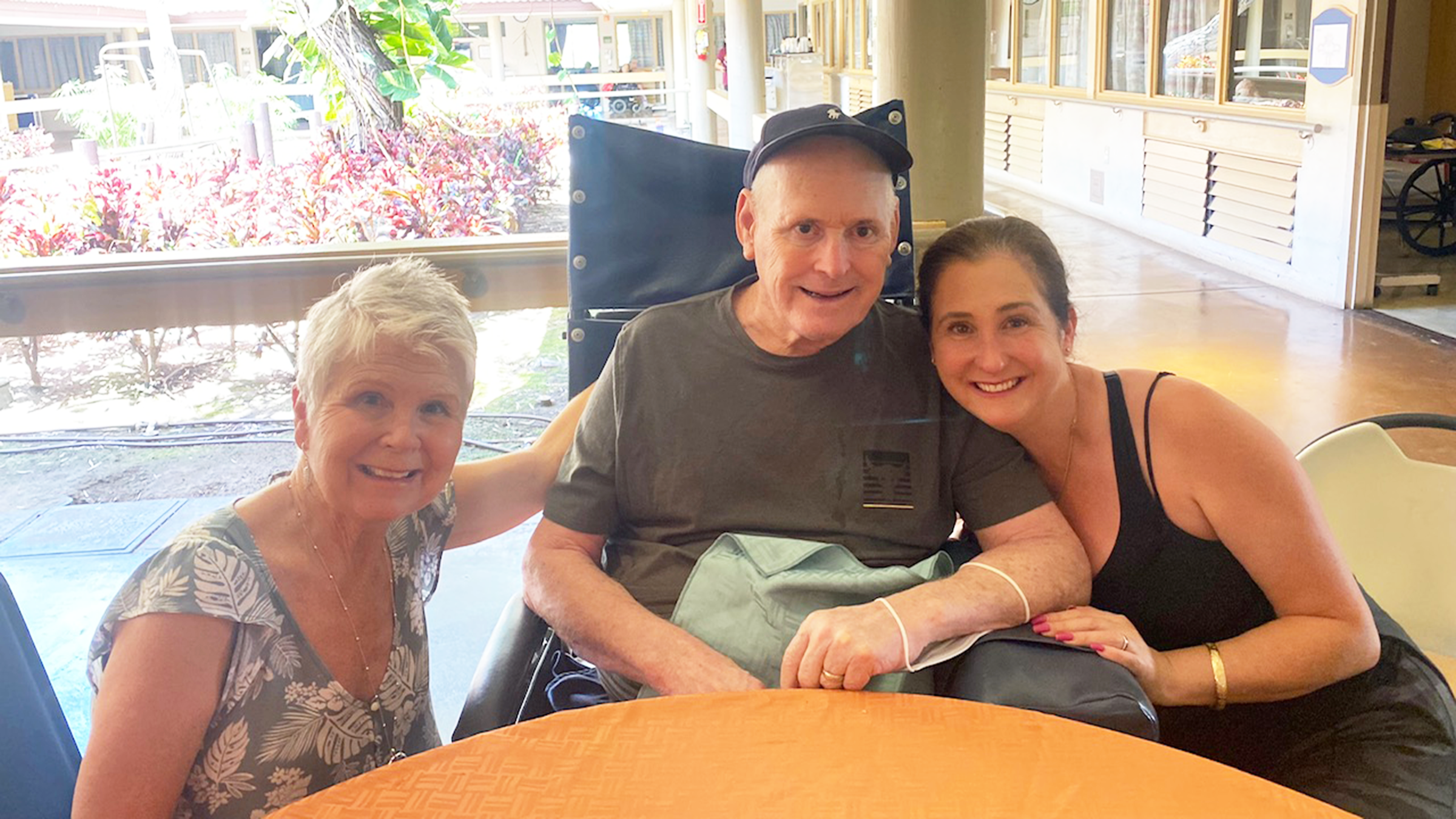
Melissa became a long-distance caregiver because she had to, not because she wanted to.
“It’s not like you were recruited to it or that you say to yourself, ‘I’m prepared to step into becoming a caregiver now,’” Melissa says. “It’s very reactive.”
Over the years, Melissa has had to deal with a number of difficult situations. Her father began having memory issues, and her mother needed emergency surgery after breaking her thigh bone in a fall.
Read more like this
Explore these related articles, suggested for readers like you.
Every time something happens, Melissa steps up to help, which often means flying to Maui.
She provides logistical support, emotional support, coordination with healthcare professionals, research into care options and treatments, and respite for her mom. The needs are significant.
“I don't know how to manage it all. As it is, I don’t take my PTO, I don’t take any sick leave. I feel like I’m always trying to pad my time off.” Melissa says. “In the case that something really awful happens, I’ll have at least a little bit of money set aside that I can use.”
Melissa is also the main support for her 70-year-old aunt, who requires daily support.
“There’s a caregiver role I didn’t expect,” Melissa says. “I’ll tell you, it leaves me very anxious and very overwhelmed, because I feel the magnitude of everything that’s coming.”
Melissa works full time in health communications. She also has two grown children whom she wants to be there for.
“I just feel very torn and tattered,” she says. “And as a remote caregiver, you’re already feeling like you’re not enough. There’s a lot of guilt and inadequacy.”
Long-distance caregiving takes ‘a tremendous amount of patience’
Sharon Greenspan, who is 59 and lives in Tucson, Arizona, also finds it tough to take care of a loved one who is far away. For her, the lack of information is a big problem.
“It’s often difficult to even figure out who to speak with,” she says.
Her loved one lives in Florida. She described their relationship as similar to a mother-daughter one.
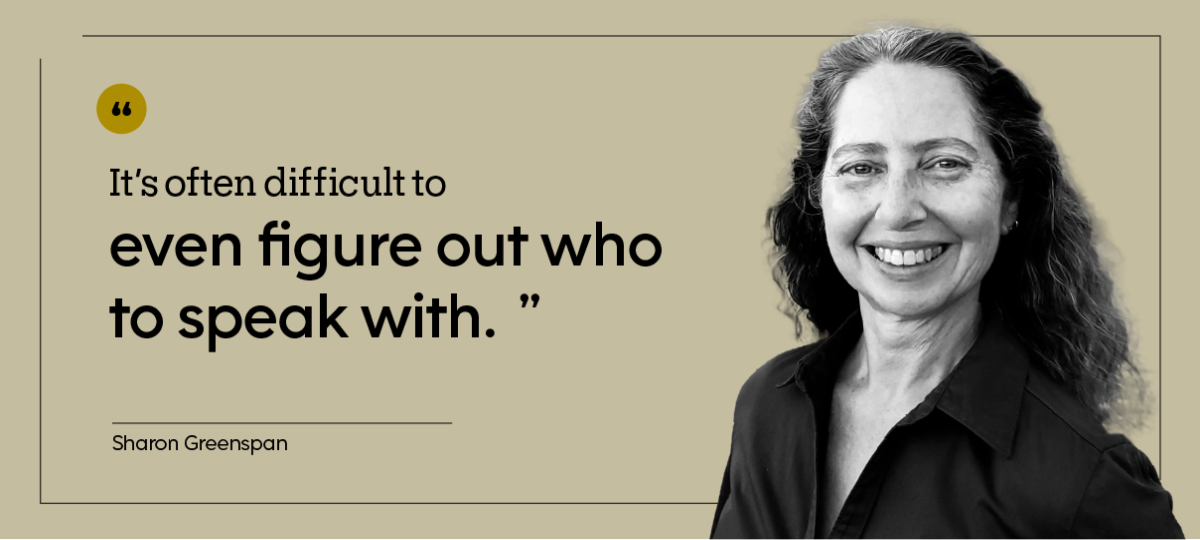
During one hospital stay, her loved one’s intravenous (IV) catheter came out.
“She didn’t know what to do, and she was scared,” Sharon says. “So she called me. And, of course, that sets off a rash of phone calls.”
Sharon spoke to nurses, hospital staff, and others in an effort to solve the problem.
Another time, while reading through medical notes after a surgery, Sharon saw that her loved one’s gallbladder and appendix had been removed at some point. She then looked at a more recent set of notes, from an exploratory surgery, which listed all the organs examined, and was confused to see that the gallbladder and appendix were on the list.
Sharon eventually tracked down information about her loved one’s medical history, but it wasn’t easy.
“It is very challenging to not be there, to not know who to speak to,” Sharon says. “I find that it requires a tremendous amount of patience and the ability to really reprioritize and figure out what’s worth getting upset about and pushing hard for and what’s not. For me to hop on a plane and decipher stuff — that’s a full day of travel.”
The urgency of long-distance caregiving
Oftentimes, travel is a key part of the long-distance caregiver’s role.
More than once, Wendy Meller Hutkin rushed directly from her workplace to the airport after receiving a phone call saying that her mom wasn’t doing well.
When a loved one might pass away within hours and they are a plane ride away, there’s no time to go home to pack a suitcase before leaving. The last time Wendy got this kind of call was at the beginning of May 2023. She picked up the phone in the late morning and was on a plane by early that afternoon. “I literally left with the clothes on my back and just got on the plane,” she says.
Wendy, who’s 48, is originally from Philadelphia but now lives in Florida. Her parents remained in Philadelphia but would visit frequently, until her mom’s health took a turn for the worse about 3 years ago.
Wendy’s mother was diagnosed with cancer. Then, she had a fall and broke her leg. COVID-19 restrictions meant that Wendy couldn't visit her in the hospital for a while.
“I just felt so useless and helpless,” Wendy says.
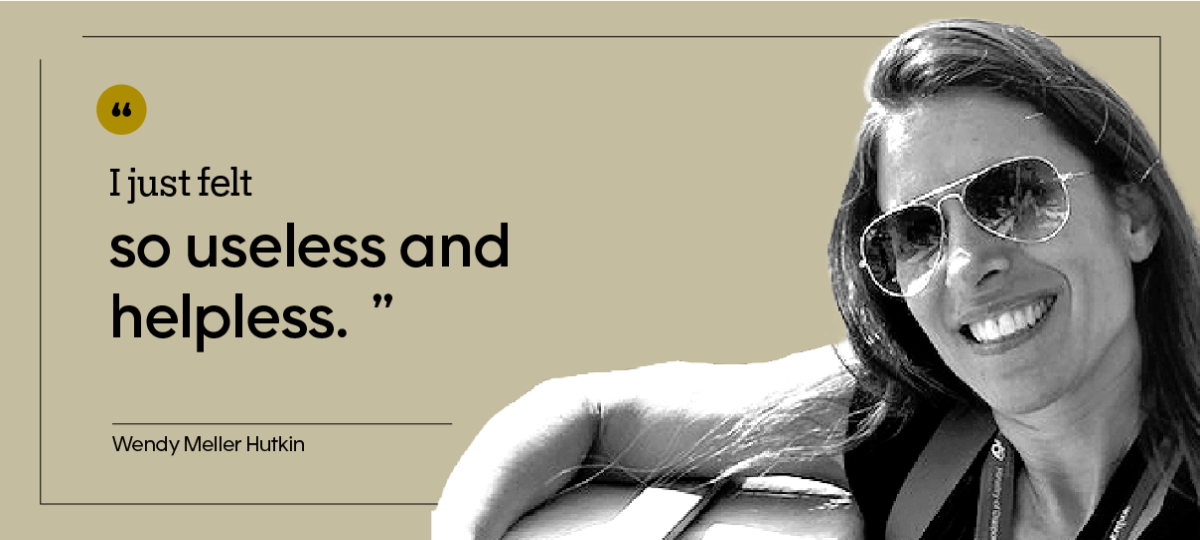
She did what she could to bolster her mom’s spirits from afar, shipping her magazines and balloons — anything, really, that she thought might make her smile.
Eventually, as restrictions eased, Wendy was able to visit in person. As often as she could, she would visit her mom and take care of her. She would stay for days, giving her support.
“The most challenging part is that I just couldn’t be there with my mom, like physically just caring for her,” she says.
Wendy couldn’t uproot her life in Florida, where she lives with her husband and two school-aged children, to move back to Philadelphia. Her parents considered moving to them, but it simply wasn’t feasible.
Instead, she provided care and support from afar.
Whenever she could, she flew to see her mom, cramming months of memories into weekends. Wendy made sure her mom felt loved, even though they lived far apart. They went out to lunch, saw a Broadway show, and spent time together painting her mom’s nails.
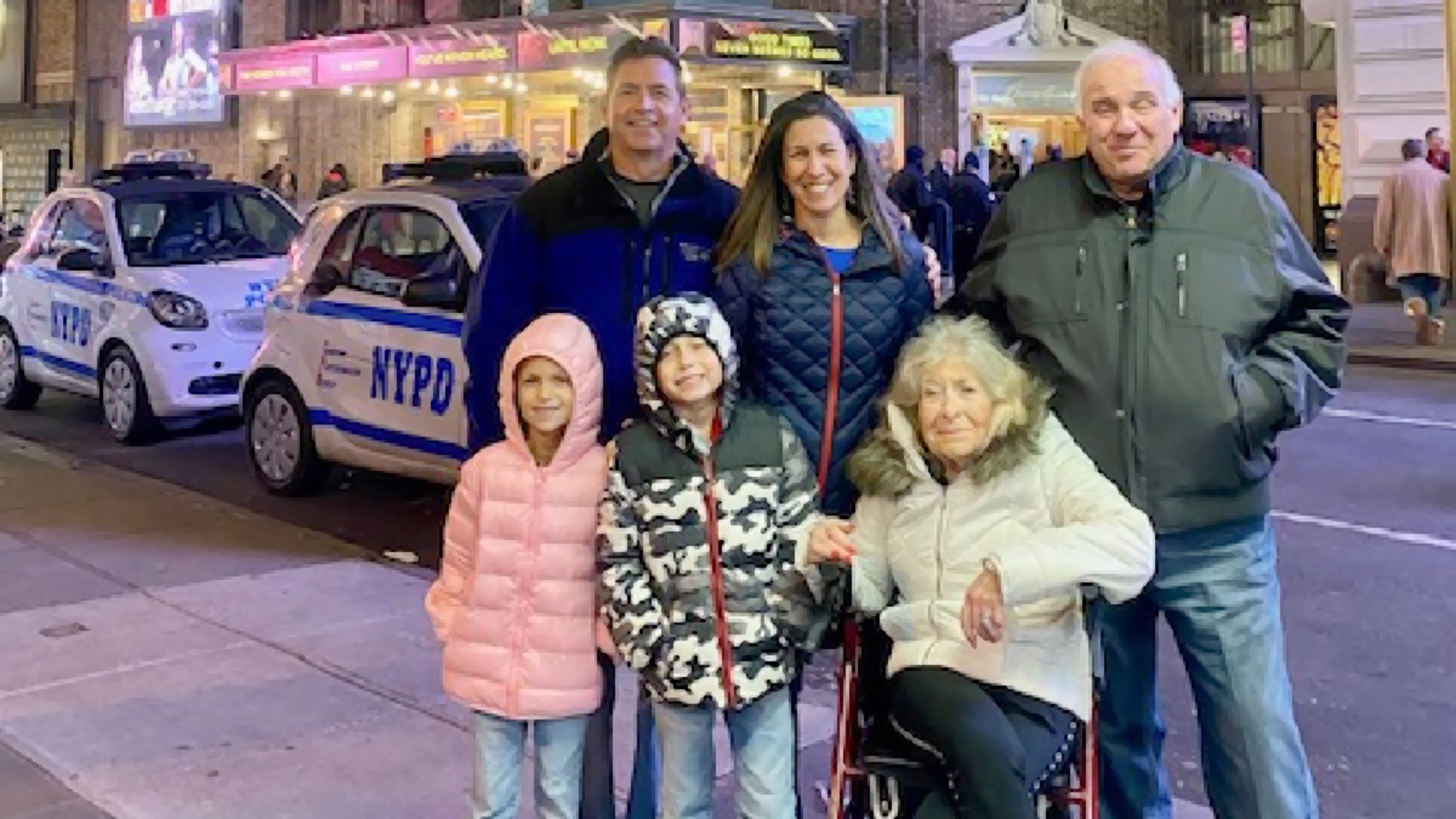
“She was just a really good mom. A really, really good mom,” Wendy says.
Her mother passed away on May 6, 2023.

Why trust our experts?




